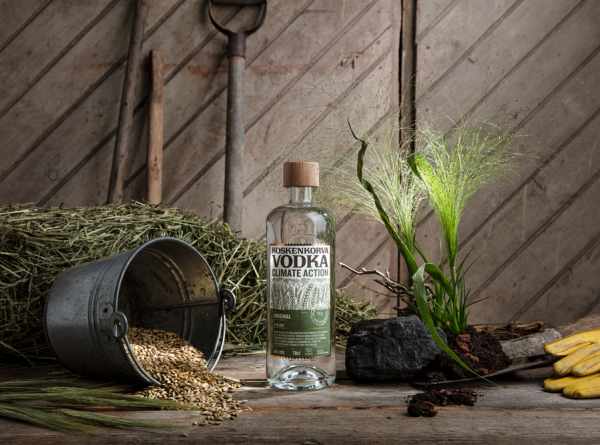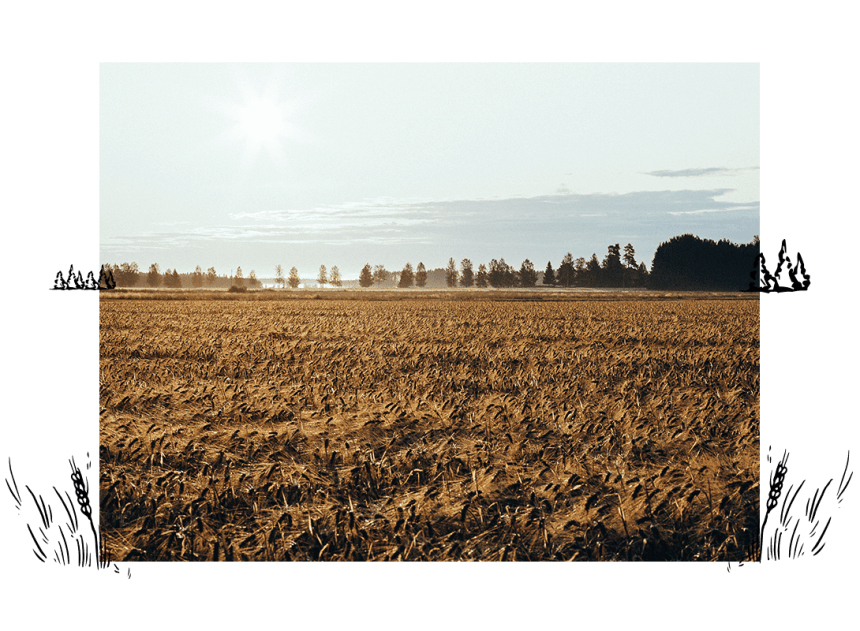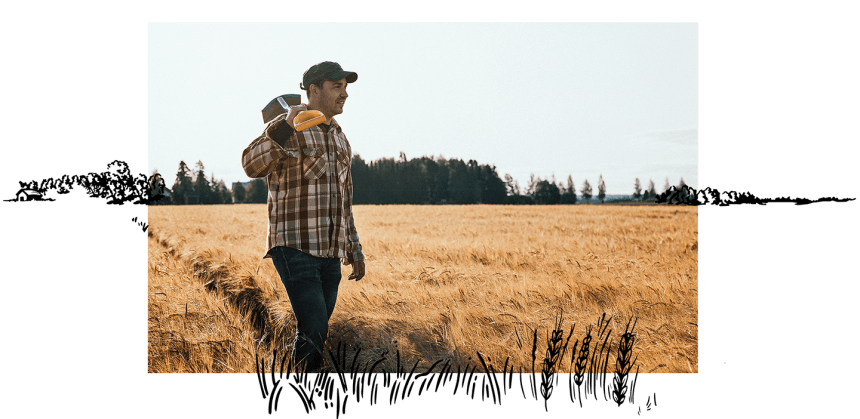Regenerative farming fights climate change
How does regenerative farming fight climate change?

Unlike conventional farming, regenerative farming removes CO2 from the atmosphere and stores it into the ground. It improves biodiversity, keeps nutrients from leaking into water bodies, and provides more and better crops at the same time. It also protects the crops against drought and insects, and helps the soil retain more water.
It’s a new way of farming that requires a big shift in thinking how we use the land in a way that is sustainable for generations to come.The large-scale effects of regenerative agriculture could be huge. If these practices were used on all the world’s croplands and pastures forever, we could potentially remove up to 322 billion tons of carbon dioxide from the atmosphere. This is 10 times the current yearly global emissions.

Long-term commitment to regeneratively farmed barley
Koskenkorva is committed to working with regeneratively farmed barley for the long-term. That’s because the benefits are not limited only to fighting climate change but they also help farmers get better yields by making their land more fertile and resistant.

Koskenkorva Vodka Climate Action is the first vodka in the world made entirely from regeneratively farmed barley. Regenerative farming fights climate change by removing CO2 from the atmosphere and storing it into the ground.

Baltic Sea Action Group’s Carbon Action Platform
We have been working with the Baltic Sea Action Group (BSAG) since 2018 to develop regenerative agricultural practices that aim to reduce nutrient flow to the Baltic Sea from barley fields, help bind more water to the soils, increase carbon sequestration and improve biodiversity. From 2020 onwards, together with BSAG, we have also supported our Finnish farmers through education and training to transition to regenerative farming practices as well as offering contract incentives for barley farmers in Finland.
More info: About - Baltic Sea Action Group and Regenerative Agriculture - Baltic Sea Action Group
